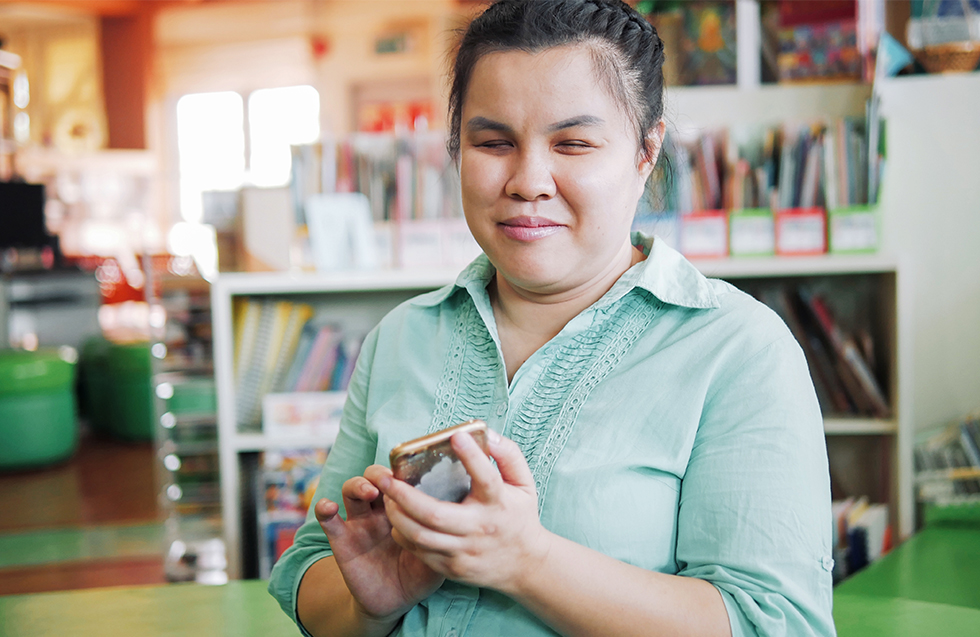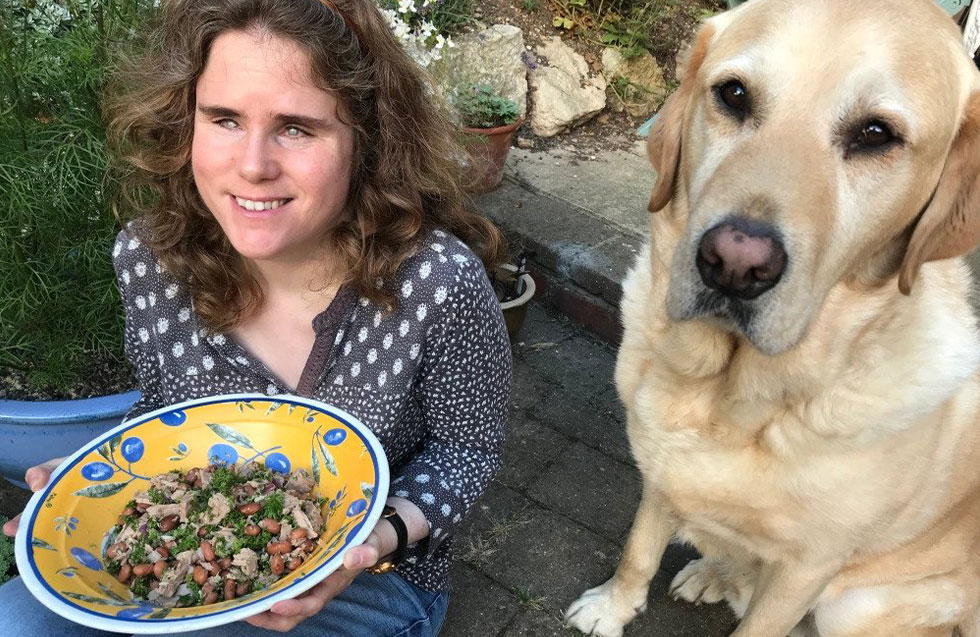Our Top 5 Anxiety Tips for the Visually Impaired

It’s Mental Health Week (15th-21st May) and this year’s theme is anxiety. Raising awareness on such conditions is so important, and as a charity, we are dedicated to providing advice, support and resources to help visually impaired people live their lives and retain a sense of wellbeing when it comes to their mental health.
Contents
Vision loss and mental health
Vision loss and vision impairments can have a huge impact on mental health. Effects can include depression, low mood and anxiety, which means it is important that people diagnosed with eye disease and disorders have access to the right support and resources available to them. In terms of anxiety, it is always a good idea to recognise you’re feeling this way and get help before it gets even worse.
Symptoms of anxiety and low mood
Common symptoms of anxiety include:
- Feeling unable to control worrying thoughts
- Having trouble focusing
- Feeling restless or on edge
- Feelings of irritability
- Such feelings can also make you feel sad, helpless, lonely, fatigued or lacking in motivation.
Simple tips for keeping your eyes, and mind, healthy!
There are many ways you can help alleviate feelings of anxiety or low mood such as:
Move more, daily!
Physical activity is good for us, both mentally and physically, helping to lower the risk of health problems that can affect vision, as well as boosting our mood. The activities you choose don’t have to be strenuous, they can simply be going for a self-paced stroll, gentle stretches or a swim at your own pace.
Use your breath in times of stress
When we’re anxious, our breath can become laboured, which can create even more anxiety. If this happens, focus on your breathing with a calming practice such as the 4-7-8 Breath Technique:
- Find a quiet place and sit or lie down.
- Exhale, so that your mouth makes a ‘whooshing’ sound.
- Close your mouth and inhale through your nose to a mental count of four.
- Hold your breath to the count of seven.
- Exhale through your mouth again, making another whoosh sound to a count of eight – all in one breath.
- Finally, inhale again and repeat the cycle three more times for a total of four breaths.
You can also listen to/see a useful video here.
Connect with others
Spending time with people in a supportive environment can make a huge difference to how you feel. Especially as feeling low or anxious can make you feel very isolated. Make sure you reach out to friends and family… and, don’t forget we’re on hand here at NAB with information of various social groups, events, coffee mornings and pub get-togethers across the county.
For more information on meet ups in your area, please call us on 01604 719193 or email hello@nab.org.uk
Eat healthily
In times of stress, it’s easy to reach for the biscuits and junk food, but these types of food, along with stimulants such as caffeine, aren’t great choices for mood balance. A healthy diet with fruits, vegetables, proteins, plenty of water and healthy fats such as nuts and seeds, can really help regulate our blood sugar levels and even help us sleep better.
Money worry support
Money worries can cause anxiety, especially with the cost of living pressures so do seek out the support and guidance on offer from places such as Citizens Advice, StepChange and the National Debtline. The Government also has a lot of guidance on different entitlements and benefits. Please visit Gov.uk for more information.
We hope our tips have been useful, and don’t forget that as charity dedicated to providing advice, support and resources to help visually impaired people live life to the full, we’re on hand too! Email us: hello@nab.org.uk or call 01604 719193 for more information.



Share This: